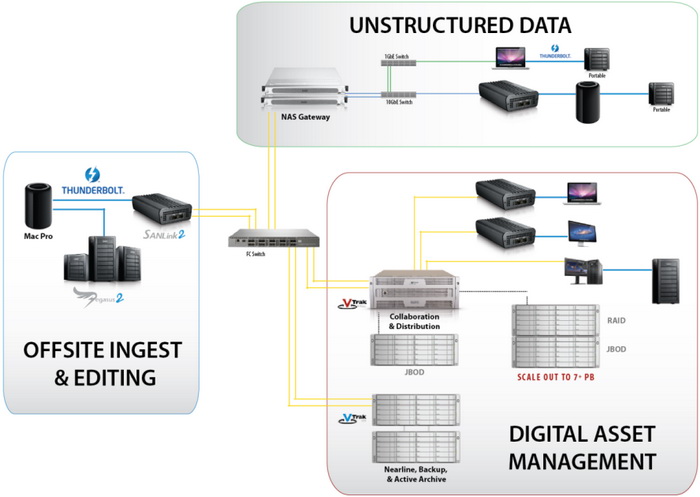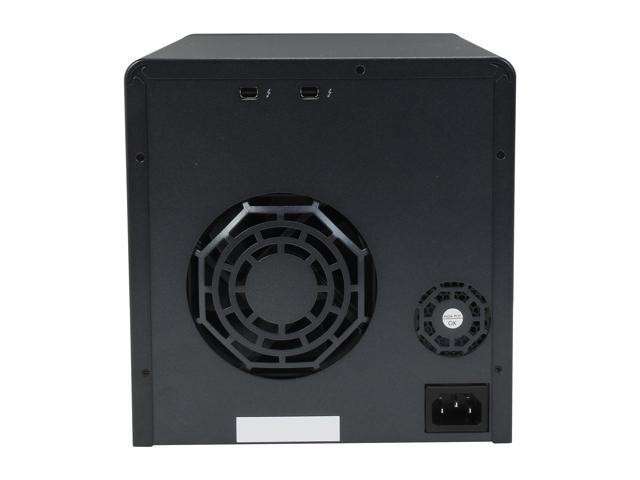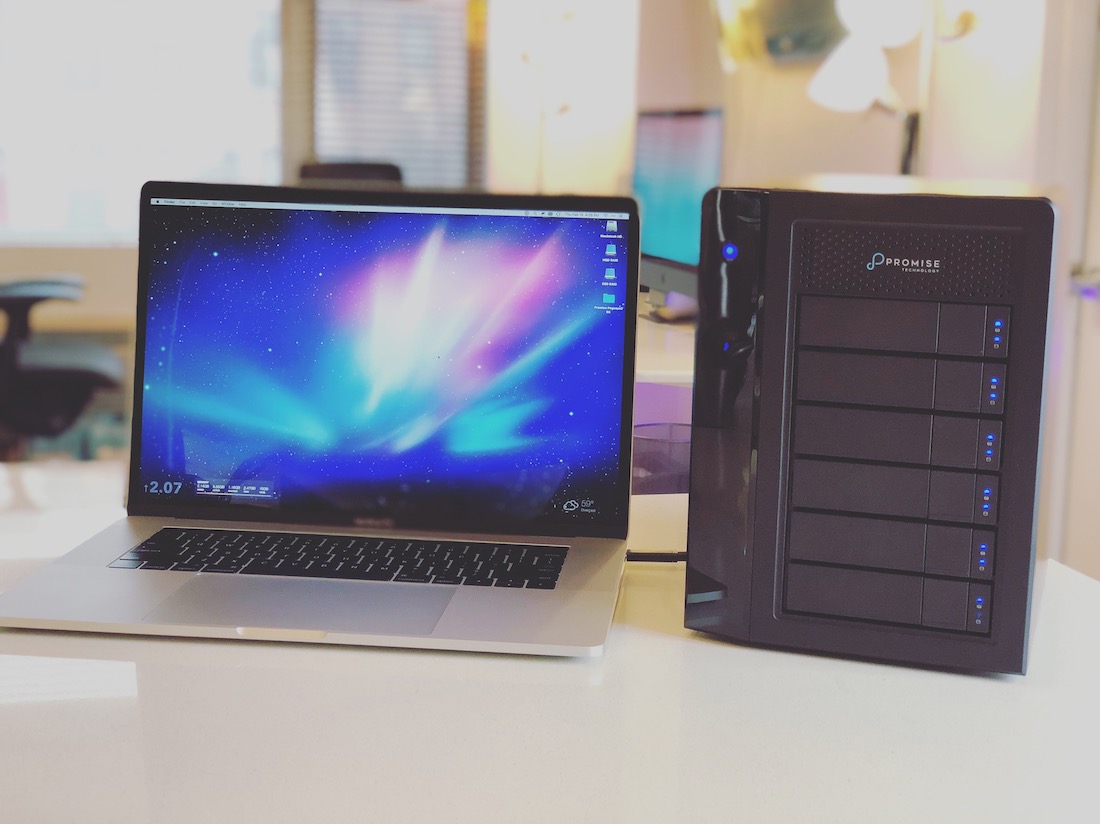
These drives by default were set up in a RAID 5 configuration to offer 10GB of storage space, leaving 2TB for data redundancy. RAID 5 is generally the recommended setup for a multiple-bay storage device to offer a balance of capacity, performance, and data integrity. Pegasus R6 also supports RAID 0, 1, 50, 6, 60, and 10.


In our trials, the drive switched between RAID 5 and RAID 0 in less than a minute. This is a great bonus as most other RAID-enabled storage devices would take tens of hours to build a RAID 5 array from scratch. Note that if one of the hard drives in the RAID dies, the Pegasus R6 would take up to 9 hours to rebuild the RAID configuration with a replacement drive. The device will still work normally during this time, however, just at a slower speed.Īs the R6 is the first Thunderbolt-based storage device, we benchmarked it with two sets of tests. In the first set, we compared its performance with that of internal drives, both traditional hard drives and solid-state drives (SSDs). In the second set, we stacked the Pegasus R6 up against other popular external devices that use USB 3.0, USB 2.0, FireWire, and eSATA connections. Our test computer used with the Pegasus R6 was a brand-new 2011 MacBook Pro running OS X Lion, with a SATA 3 (6Gbps) SSD. Although Thunderbolt's ceiling throughput speed is a much higher 10Gbps (about 1.2GBps), the transfer rate will be limited to the notebook's internal drive speed.įor this reason, in the tests against internal drives, we let the Pegasus work with the least involvement of the MacBook Pro's hard drive as possible. First, we timed how fast the drive performed when copying data within itself, from one folder to another. This means the drive had to perform both reading and writing at the same time. In this test, the Pegasus R6 registered 192.53MBps and 228.06MBps in RAID 5 and RAID 0, respectively-about five times the speed of the fastest SATA 3 internal hard drives and about 170 percent the speed of a typical SSD. After that, since we had two R6 units available, we performed the second test in this category by copying data from one R6 to the other, so that one of the units was doing the reading while the other was doing the writing. In this test, the devices registered much faster throughput at 323.8MBps and 353.2MBps for RAID 5 and RAID 0, respectively.

This is about three times the speed of even the fastest SATA 3 hard drives and, again, some 170 percent faster than a SATA 3 SSD. The second set of tests measures the Pegasus R6's performance against more traditional external storage drives. For these tests we copied data directly from the MacBook Pro's internal SSD, which imposes a throughput bottleneck. These tests show what a typical user can expect from the Pegasus R6, since it replicates how most of us would use an external storage device. In RAID 5, the Pegasus scored 210.5MBps and 177.5MBps for write and read, respectively.


 0 kommentar(er)
0 kommentar(er)
